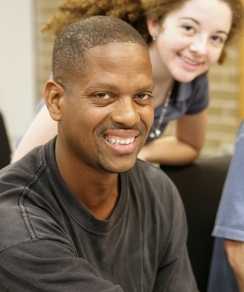OCCRL has concluded what has been a multi-year engagement with the evaluation of Adult Education bridge programs in Illinois initiated by the Illinois Community College Board (ICCB) and the Joyce Foundation’s Shifting Gears initiative in 2007. The development and implementation of bridge programs were motivated by two complimentary goals: 1) the desire to improve employment and college opportunities for adult education students; 2) the need to meet state labor market demands in key occupational sectors. An early achievement of Illinois’ bridge program efforts was the adoption of a bridge program definition by ICCB, providing a framework for bridge implementation at the state level. In Illinois, a bridge program must include contextualized instruction, career planning and exploration, and the provision of transition support services. At the conclusion of our evaluation efforts, we are dedicating a couple blog posts to recap what we have learned from this endeavor and highlight some final publications.
In 2010, we released a report detailing survey results from a statewide bridge survey, and we learned there were 33 existing bridge programs and 30 bridge programs under development. These bridge programs blended basic skills and occupational knowledge and skills. We found that most of the existing bridge programs were contextualized with Health Science; Manufacturing; or Transportation, Distribution, and Logistics Career Clusters.
In 2011, we redistributed the bridge survey to bridge providers in Illinois and learned the scale of bridge program implementation increased. In the new bridge survey report, we learned existing bridge programs in Illinois grew from 33 to 43 and we saw a larger number or participating organizations implementing bridge programs. Despite a common bridge definition, the survey confirmed some of our implementation evaluation results that suggest bridge program design varies extensively in the number of courses offered, bridge duration, and the types of support services provided to students, among other things. Our prior research confirms that the assignment of a transition coordinator is associated with bridge completion, and our survey results found that 76% of bridge programs included this important support for bridge students.
Read the full survey report, released in June 2012, to learn more about adult bridge programs in Illinois. Forthcoming blog posts will highlight some recent data on more detailed bridge program characteristics and bridge student outcomes.




